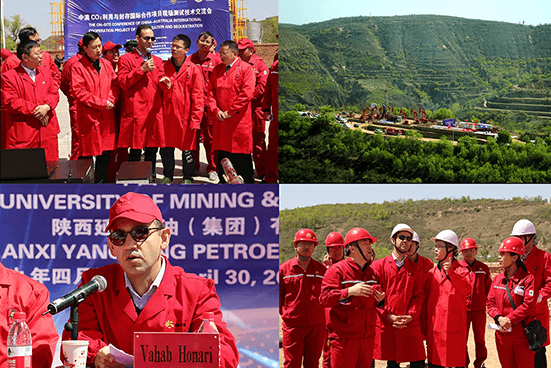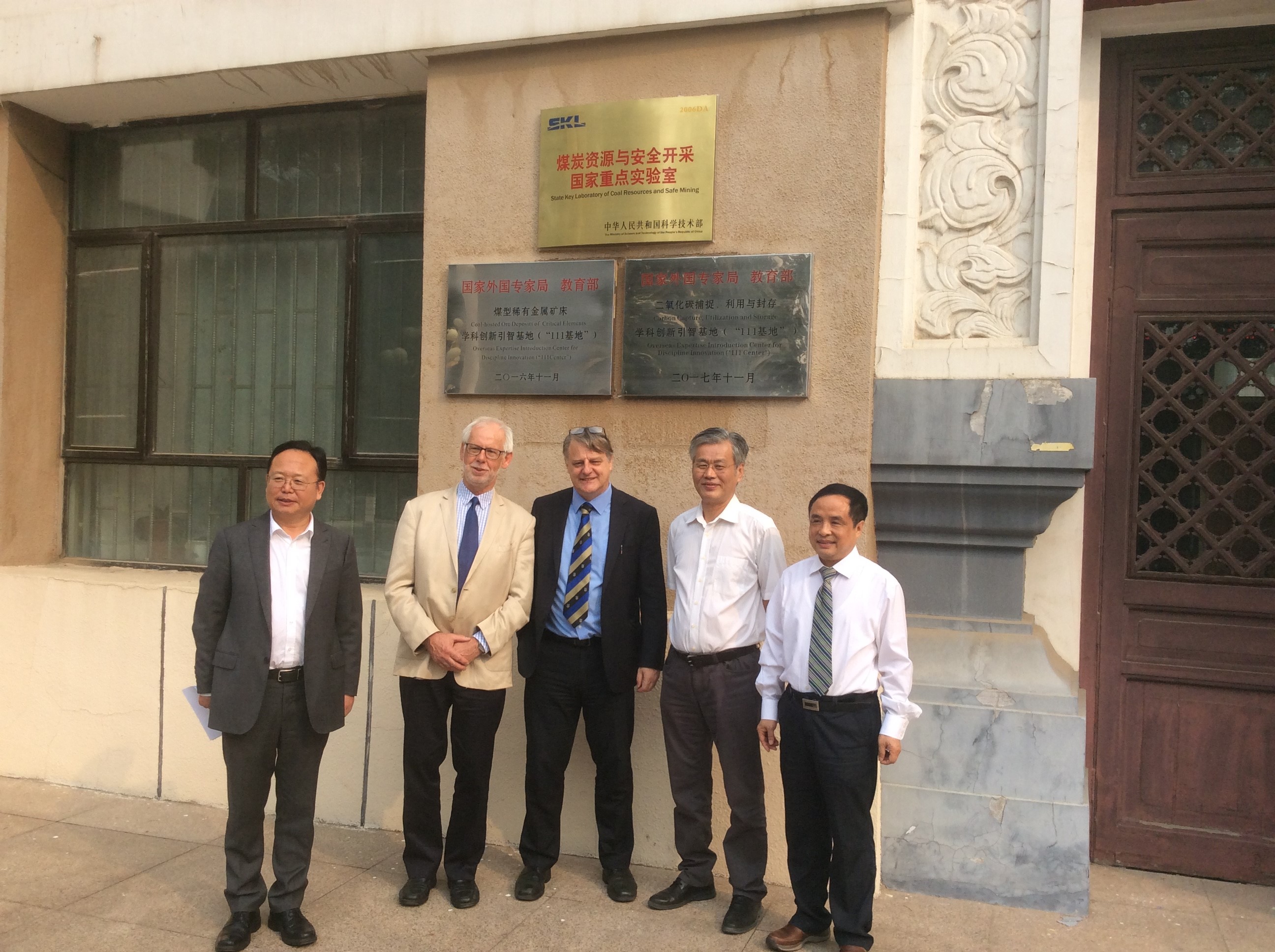China Collaboration
A successful and productive relationship has been built between Australia (through UQ) and China, looking at the very important issue of evaluating sustainable injection in very tight reservoirs.

Technical Collaboration
In May, UQ’s Dr Vahab Honari joined the Yanchang Petroleum management team and representatives from the China University of Mining and Technology (CUMT) for an on-site ceremony of the China-Australia collaborative carbon capture, utilisation and storage (CCUS) project. The event recognised the commencement of well-site operation at the Wuqi reservoir in China. Dr Honari presented the results of preliminary well testing to the Wuqi technical subsurface and operations teams. The tests had been conducted in the Wuqi reservoir between February - April 2019. The well re-completions for three selected wells in the reservoir are progressing, and will be followed by testing the water injecting system until mid-June, before the main well testing program begins. The CO2 injection test trial will provide insights on relative permeability changes due to the introduction of a CO2 phase into the reservoir, and allow a quantitative prediction of CO2 injectivity, pressure build up and steady rate. This data will be used to define the reservoir dynamic CO2 storage capacity. CUMT and Shaanxi Yanchang Petroleum will use the field test results to design field-wide implementation of CO2-enhanced oil recovery and determine the associated carbon storage potential from such operations. The proactive partnership caught the attention of the Yanchang media who followed up with a video interview with Dr Honari about the well testing program.
The ceremony came just eight months after Professors Andrew Garnett, Jim Underschultz and Xingjin Wang met with Yanchang Petroleum and CUMT in Beijing on 13 September 2018 to finalise the well instrumentation and test procedures for the field trial in the Ordos Basin. The Yanchang Petroleum Company had engaged equipment suppliers and contractors to instrument the injection and monitoring wells. Yanchang and CUMTB staff were invited to a special update workshop on Australia’s CCUS scoping study in Brisbane in May 2019.
The University of Queensland actively developed a substantive plan on Chinese collaboration, resulting in the establishment of the Chinese Geotechnical and Social Science Collaborations.
Social Collaboration
Data from the Chinese survey was compiled, standardised and combined with the Australian data set. Exploratory statistical analyses was conducted with some further explanatory factors to be tested.
Comparative results show that:
- Energy preferences in both countries appear to be driven by attitudes to global warming.
- There is slightly more support for CCS in China as it appears the Chinese equate the concept of CCS to cleaning up coal pollution rather than just carbon dioxide.
- Both countries support renewable energies the most.
- Biomass and nuclear have higher support in China, but coal has much lower support than in Australia.
The following images were taken by UQ-SDAAP delegation members during the September 2018 trip to Jinbian, Shaanxi Province, PR China:
Project 111
Prof Andrew Garnett and seven professors from UQ are participating in the prestigious Project 111 program, which the Chinese Government has created to bring world leading scientists to China. Prof Peng, China University of Mining and Technology (CUMT) invited the UQ researchers to participate in Project 111 to share their knowledge of carbon capture and storage science with CUMT researchers. During September 2018 Professors Andrew Garnett, Jim Underschultz, Brian Towler, Ray Johnson and Joan Esterle conducted a series of presentations at CUMT as part of this program.

